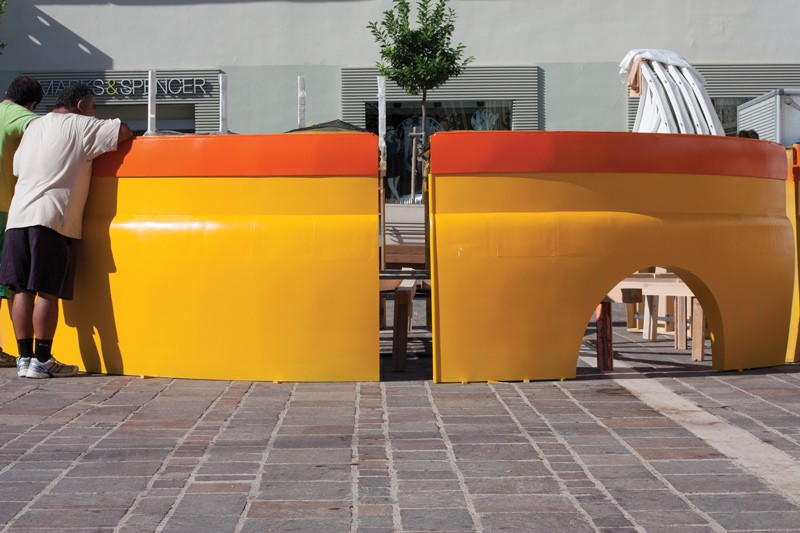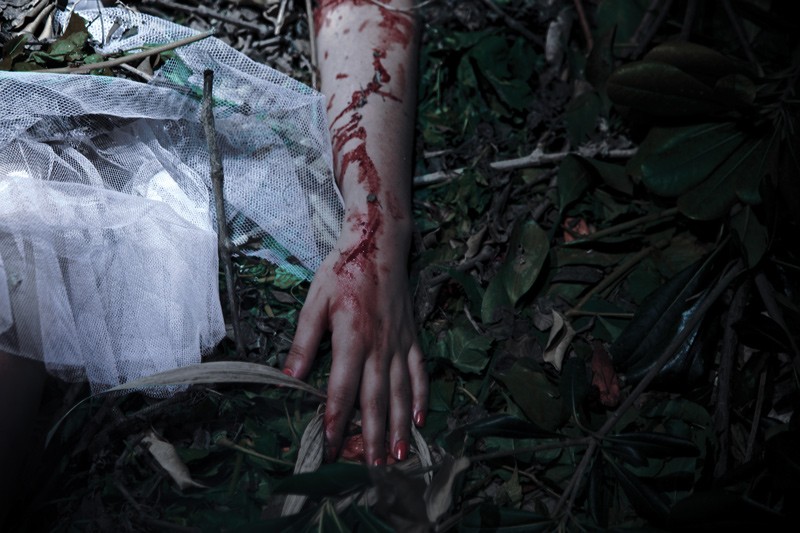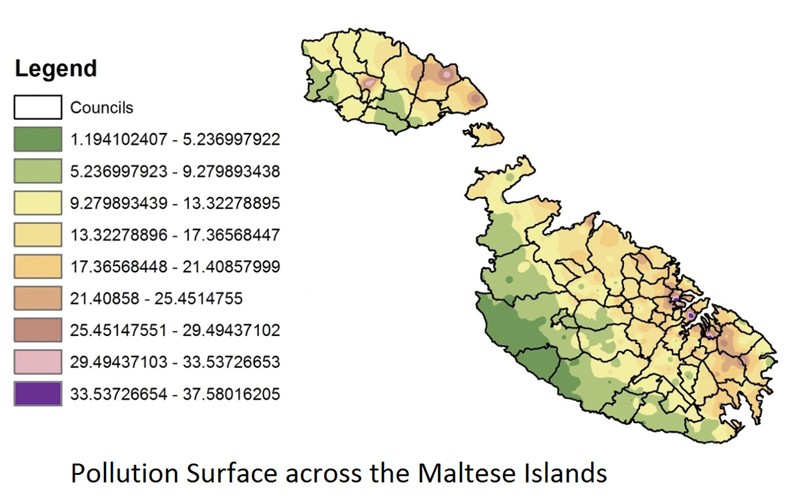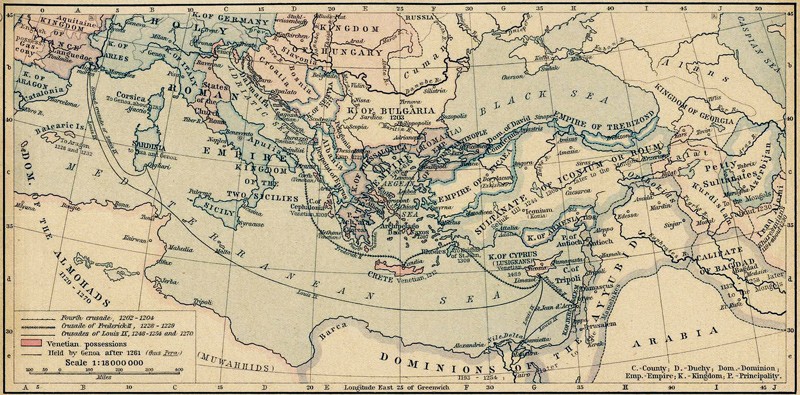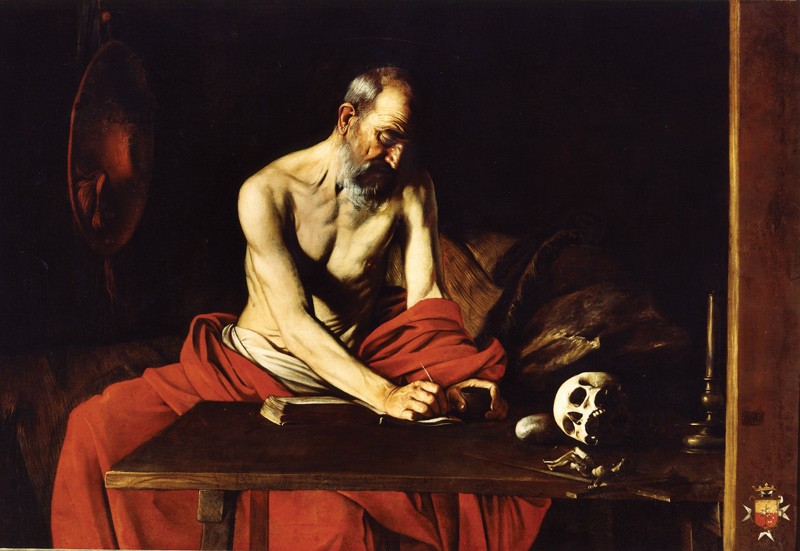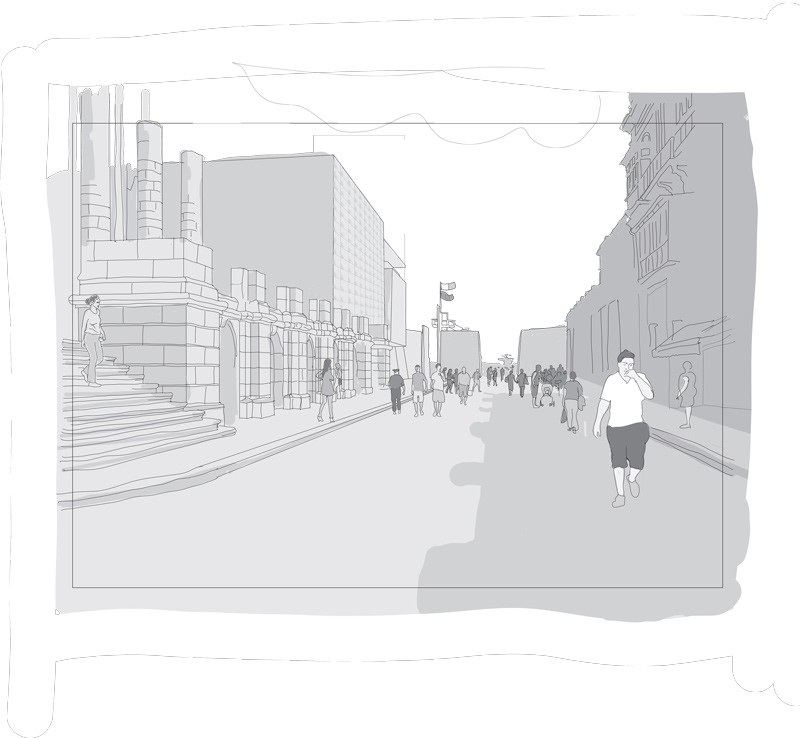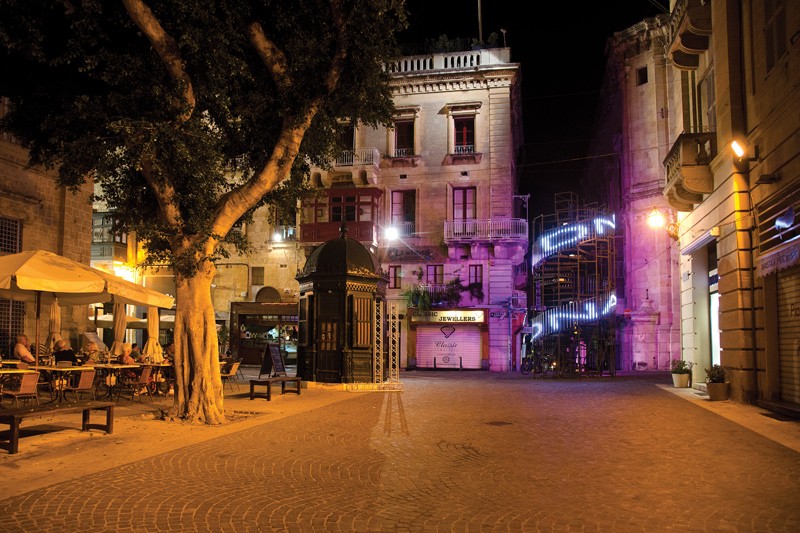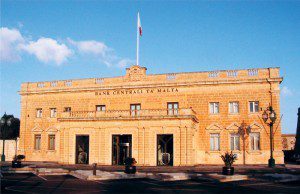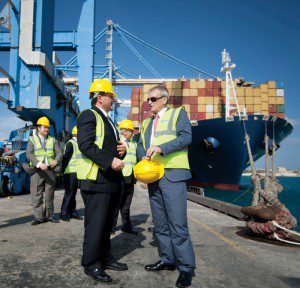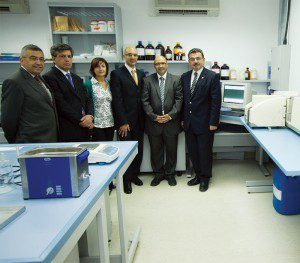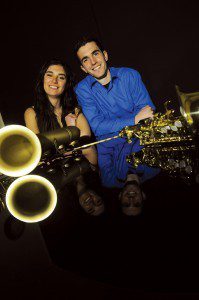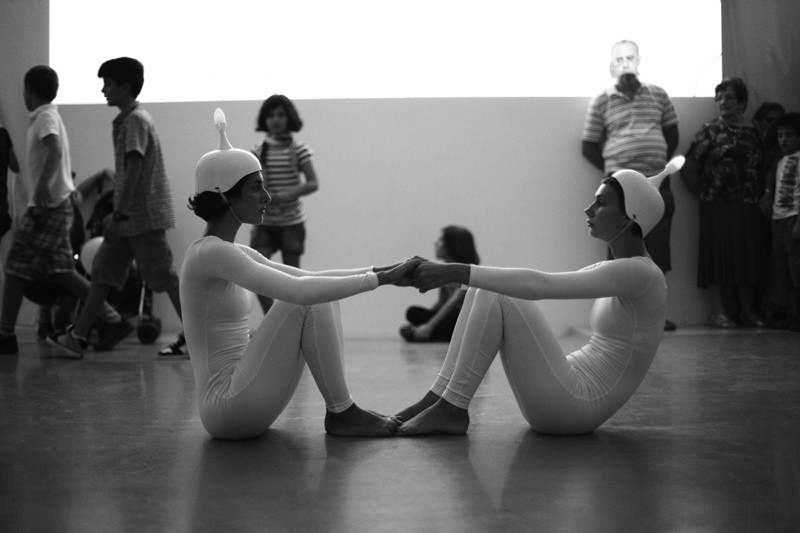THE WIG HUNT
Imagine a crime story told through film, photoshoots, autopsy reports, audio recordings, emails and more — how would you read it? Where would you start? This is the nature of transmedia, taking a universe and spinning from it many stories and subplots. Its an exciting way of telling a story, used to advertise Game of Thrones, the latest Batman movies and the Star Wars franchise. But even a church can be a Transmedia experience with statues, sermons, stained glass, and architecture retelling the Bible’s stories.At this year’s Evening on Campus, Josianne Mamo’s The Wig Hunt entry won the first Transmedia Storytelling Competition ever held in Malta. I managed to meet her just before she left to Scotland.
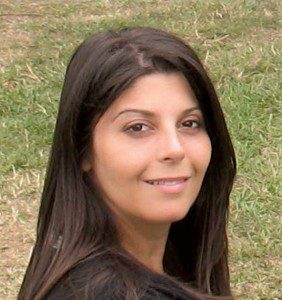
– What is the wig hunt?
The Wig Hunt starts off with a car crash near Loch Lomond (North of Glasgow). In the car they don’t find anyone, just blood. A short distance away they find a brutally murdered and sodomised woman. And, PC James Murray — he’s the investigating officer — is quite new to the business. He’s not really doing well, but he slowly builds his skills as he goes along.
– Is he inexperienced?
He was in a different field, but because of love he changes his career. He moves to Glasgow to be closer to the person he loves, but this move has made the relationship difficult. Probably inspired by my own life. He was in scuba diving before moving into police investigations. He finds the suspect… I shouldn’t be giving too many spoilers. Let’s just say there is another murder and the investigation takes a whole new turn. It’s a story about sex, drugs and crime in Glasgow. I’m trying to take freemasonry as we know it in the Mediterranean and place it in Scotland. Will that be successful? We’ll see.
– Where did the inspiration come from?
House of Leaves by Mark Z. Danielewski was a major influence in my writing. What’s fascinating about it is the form in which the story is told, which inspired me. My story started off as an exercise in free writing and then it moved from there. The idea was to give bite sized information. I tried to keep the reader going by giving snippets of information then moving on to the next part and the next part and the next part. It fascinates me how a titbit of information grows and becomes never ending. Of course, at the end you need to find a resolution — you need to tame your idea.
– Many of my friends won’t read novels or anything longer than 2000 words.
That’s why I chose this form. The idea was to simulate something that you would find on the internet. Let’s say you found a newspaper article and it got you piqued, and you moved to the next article. It’s like surfing the web and letting those bits of information unfold.
The actual text, simulating official documents (autopsy reports, police reports and so on); a short film on the website; audio clips similar to police investigators talking into a recorder and hearing the conversations as they go along. The idea is not just to give a manuscript but supplementing it with other material.Following the story through different media is what is exciting about it, because it is so different. I moved on and created a website with a timeline where the reader could actually go and read whichever piece of information he wanted, be it the video clip, audio, and you don’t need to read all the titbits. If he’s more interested in the personal relationship then there is another section he can go into. The reader can choose what he wants to read and how to read it.
– What changes did you need to do to make it as a writer in the way you thought of the story to be able to write in a transmedia style? How did you research your novel?
I went there as a writer of historical novels and I ended up writing a crime novel. That went beyond my wildest imagination — it was something major. I had to change in my way of thinking. The fact that I am studying at Glasgow opens various doors. What I did was instead of approaching actual people, I read genuine reports that were leaked online, like David Kelly’s report and various others. I try to go online. My next step is to go to this crime writing festival called Bloody Scotland, which I am very excited about. There will be the likes of Ian Rankin and Denise Mina whom I met at an event at the University of Glasgow. On a whim, I bought the tickets before I started writing the story, now it will be even more exciting. One of the talks will be on how they do research, some people do go all the way and follow police officers and some of them have been police officers, like Karen Campbell was and then she started writing. There are different degrees of involvement.
“It was refreshing for me to write in these different media. That actually helped me in the writing process.”
– You had the likes of Malcolm Galea, and other big names in your photoshoot and film. Why do you think they agreed to get involved?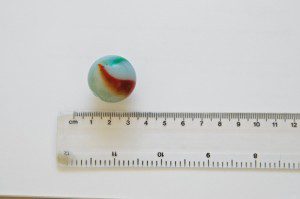
I’m still asking myself that question. Malcolm was a major plus for me. He kept using a word when I was showing him a particular character I wanted him to act out (Val Gina — a transvestite performer), which was ‘fun’. Injecting a bit of humour into my script might have helped get him on board. I always had him in mind for that particular part — it was a major thing for me to get him involved.
-Did you find it hard to write for so many different types of media and why was this a Transmedia story?
More than the writing it was producing it that was very demanding. The challenge was making sure that the tone for each document was right. It was refreshing for me to write in these different media. That actually helped me in the writing process. One big challenge was trying to inject flavour, characterisation, bringing them alive, especially the actual murdered victim. In the crime scene, I tried to strike an emotional chord through the photos. As for the actual investigator, having that subplot going on hopefully makes the character three-dimensional.
 – What does Transmedia bring to storytelling?
– What does Transmedia bring to storytelling?
I would say that it adds richness. Telling a story is challenging. As a writer you have a picture in your mind and
you have to place it in words. Showing that picture that you have to the reader
is exciting and a writer of a traditional manuscript would have to transmit that only through words. In my case I am doing this with various different means, photos, audio clips, so people can hear the suspect speaking. The challenge was to link all this together to make sure that there are no loose ends.
Perhaps this might inspire next year’s participants: “It is a fantastic opportunity to be working on something you really love and winning this transmedia competition means I’ll have even more time to work on this project,” said Josianne Mamo. “You learn so much by doing something different. And, I loved it,” she said

The other participants:
| How it all started |
|
Every story has a beginning. This competition was inspired by a BBC TV programme which highlighted the Transmedia approach of telling stories. After watching this, Patricia Camilleri got her team hooked onto the idea, at the same time as Jean Pierre Magro was organising the first Transmedia seminar in Malta. The rest, as they say, is history. This year there were six entries. Daphne Kelleher, the event’s organiser said, “I was intrigued by the stories […] I wanted to see them visually and what they could come up with, […] they captured the imagination”. Josianne Mamo’s entry was the one which gave the most various and well prepared media. For next year, Daphne suggests, “Go into what you know and use it in detail, be enthusiastic and form a team with people who have different skills.” Transmedia uses different media, but instead of having one storyline, build a universe and from it draw many stories. To be continued… new competition launched in March 2012, see: |
– ANGELUS
Simon Theuma, Gabriel Borg, Mark-Anthony Fenech & Jean-Luc Portelli
Post-war 1950’s. A new city has sprung up in the desert where life is dictated by God. You are wellcome as long as you have God in your heart, but what does that mean?
Media: an Alternate Reality Game, Novels, Live Events, Comics, TV Series, Webisodes, Podcasts/Radio, Newspapers, Augmented Reality, web-based role playing game (MMORPG), Twitter and Facebook.
– CYBER SECRETS
Daniela Azzopardi, Marta Vella & Graziana Agius
The University of Malta’s Media Faculty blog has been hacked and secrets… dark secrets… are being exposed. The shameful side of lecturers and students are being exposed. Everyone has a secret — whose will be next?
Media: blogs, online forum, mobile app, TV series, and novellas.
– DREAMS OF THE UNDESERVING
Ivan Xuereb
Insomnia! Everyone can suffer from it, but just imagine if you never slept. This is the Sandman’s fate. He offers people the chance to have their dreams… at the expense of others.
Media: website, blogs, Vimeo, YouTube, Facebook, Twitter, Physical Installation, and Graphic Novel.
– THE DARK
Jean-Marc Chapelle & Karl Xuereb
In Malta a secretive research company called Obertek finds a dome under Mdina. Inside it they find an artefact which has extraordinary powers but after a failed experiment the artefact vanishes. The dome’s carvings hold a mystery that must be solved to reclaim the artefact.
Media: website, TV series, Facebook, Twitter, YouTube, videogame, mobile app, email newsletter, QR codes.
– THE UNDERDOGS
Neil Attard & Valentina Cassar
Coming from a difficult background Donovan finds it difficult to succeed. He has problems with work, colleagues and his girlfriend. After meeting a stranger in a bar, he is darkly reborn and seeks revenge on his employers.
Media: webisodes, film, comics, game, website, television, other promotional media.
Brain Awareness, Research and Facts
Prof. Giuseppe Di GiovanniContinue reading
Bad traffic, bad air
Air pollution is one of Malta’s greatest concerns. Transportation is the principal source with over 300,000 vehicles belching out smoke, which damages our environment and health. Emissions from vehicles need to be monitored and controlled, and the information used to improve the current system and ensure an acceptable air quality.

In Malta, air pollution levels are monitored by MEPA (Malta Environment and Planning Authority). MEPA has 131 diffusion tubes that take monthly measurements of air pollution levels. The pollution data set used ranges from 2004 to 2011. On the other hand, Transport Malta (TM) measures traffic flow along the main arterial roads. By using the pollution data set, Nicolette Formosa (supervised by Dr Kenneth Scerri) mapped the air pollution levels and major sources around Malta.
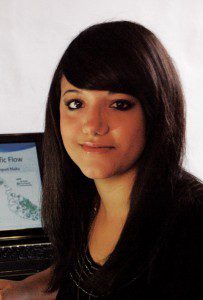
MEPA and TM take measurements at different locations. To overcome this problem, the pollution data set needed to be interpolated to extend over the whole of Malta. By interpolating the pollution measurements using mathematical models, traffic and pollution levels can be directly compared.
Malta was divided into four zones. The Grand Harbour area had the strongest link between traffic and pollution. The central area has a strong overlap but this decreased on Saturday and more so on Sunday. The north and south parts of Malta experienced lower levels over weekends. However, the northern area has a stronger link during weekdays. The areas of Floriana and St Julian’s had a remarkable link between pollution and traffic, lighting a red bulb marking priority areas for the authorities to tackle.Overall, Malta’s air pollution problems are interwoven with its traffic volume. This highlights a problem which needs both scientific and political measures to tackle. Formosa’s studies need to be taken a step further, “there needs to be a statistical means to interpret the data of air pollution measured against traffic flows in the same areas“ said Hon. George Pullicino, Minister for Resources and Rural Affairs. If implemented, the research could help lower health care costs in Malta while improving the quality of life.
This research was performed as part of a Bachelor of Electrical Engineering (Honours) at the Faculty of Engineering.
Islands and Security
Islands have played different and unique roles throughout history. The process of decolonisation, starting in the late 50s, led to a proliferation of small island states. These new independent nations sought to develop their own foreign and security policies.André P. DeBattista (supervised by Dr Isabelle Calleja Ragonesi) studied International Relations in Malta’s history to examine the role of small island states in regional and global security. He found that small island states reinforce security and can stabilise regions.
Due to their geography, small islands can wield disproportionate influence. They may serve as military outposts and control waterways used for commerce, trade and defence. However, islands can still be vulnerable, weak and externally manipulated. For millennia, Malta has been fought over by regional powers for purposes of trade and defence. In 1964, for the first time in its history, Malta became independent and could chart its own political trajectory. Despite political independence, it was and still is reliant on other states.
Throughout its history, Malta has played an important role in the provision of regional security. It had a strong influence in both the Cold War period and also after its recent accession to the EU. DeBattista believes that Malta is well positioned to spearhead research on small islands; “as a small island state, Malta managed to adapt to different circumstances and challenges. It excelled both within its region and in the international community. This success should encourage us to conduct further research in this niche area, in order to provide solutions and policy options to other small island states.”
This research was undertaken as part of a Masters of Arts in International Relations.
Caravaggio
…was a murderer, brawler, and one of the greatest artists that ever lived. As he travelled from Rome to Malta, he inspired fellow artists in different regions who developed distinct styles. In Malta, he left some of his greatest artworks
Cultural Infrastructure for Mega-events
Graziella Vella for the Valletta 2018 Foundation
Science in the city 2012
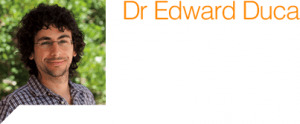 On the 28th September, Malta’s Science and Art festival launched to over 12,000 people, as part of the EU-wide celebration Researchers’ Night. Science carnival parades, busking, art installations, performances and more filled Malta’s capital with over 20 events — bleeding into the Notte Bianca festival. Science and art are usually seen as two separate cultures. Some humanities branches have directly rejected it, but other fields are embracing science. In Malta, top artists leafed through books, or had a chat with University of Malta scientists to find sources of inspiration (or criticism). Valletta became filled with giant fruit flies and DNA strands (Climbing your DNA). You could even have sat down, had a coffee, and pondered why there were acetate brain slices hanging in front of Malta’s National Library. The city could be viewed through a different lens for a few days.
On the 28th September, Malta’s Science and Art festival launched to over 12,000 people, as part of the EU-wide celebration Researchers’ Night. Science carnival parades, busking, art installations, performances and more filled Malta’s capital with over 20 events — bleeding into the Notte Bianca festival. Science and art are usually seen as two separate cultures. Some humanities branches have directly rejected it, but other fields are embracing science. In Malta, top artists leafed through books, or had a chat with University of Malta scientists to find sources of inspiration (or criticism). Valletta became filled with giant fruit flies and DNA strands (Climbing your DNA). You could even have sat down, had a coffee, and pondered why there were acetate brain slices hanging in front of Malta’s National Library. The city could be viewed through a different lens for a few days.
There are other ways science and art can interact. Science and technology can be used to explore art and analyse it. Van Gogh’s Sunflowers was recently examined by chemists, identifying why the pigment was becoming a mucky brown, shedding insight on how to reverse the degradation and bring back the artist’s true vision. Artists and scientists can come together to collaborate on new research. Recently in Ireland, a weaver visualised a large data set by making a huge tapestry. The scientist then analysed the giant carpet to interpret her data. Art can also be an excellent way to explore the ethical implications of science — its potential harm, benefit or relation to society.
Science in the City was simply a start that dipped its toe into this new pool. It saw researchers and students combine their efforts with artists and performers to bring together a range of events (read about Alexandra Fiott’s experience on pg. 23). Nine scientists appeared live on prime time TV to talk about their research with prominent entertainers Angie Laus and Pawlu Borg Bonaci. From within large crowds, science students performed science demonstrations, while MCST (Malta Council for Science and Technology) held a highly successful science fun fair for kids, with another kids activity at Auberge D’Italie by MARes (another EU funded project). Scientists met politicians at Science in the House organised by the Malta Chamber of Scientists. There were talks on the health benefits of local honey by Simone Cutajar (science graduate), mathematics and piano recitals by Tricia Dawn Williams, electronic and flute performances from Italy with compositions based on the Chaos Theory that explains hurricanes, and a bit more. The big night was followed up by talks and discussions. Ira Melkonyan spoke about the new field of BioArt while there was even a discussion on human cloning after the play A Number by Caryl Churchill. Over the next few pages, THINK has selected the major artworks created for Science in the City.
Words by Dr Edward Duca, full disclaimer: author is the project manager of Science in the City.
Part of Science in the City, Malta’s Science and Arts Festival
For more stories click here
Find out more:
– HOW?
– DESTROYING BOUNDARIES THROUGH SCIENCE IN THE CITY
Supporting the RIDT… BECAUSE RESEARCH MATTERS
When researchers are at work, they are taking steps that will eventually change our lives. Some steps are very small and will take years to complete, while others are faster and larger. Researchers are part of a global process that will provide solutions to a multitude of challenges. They can resolve our problems to provide energy, safeguard the environment, maintain food supplies, improve healthcare, and sustain efficient transportation. These solutions need innovation and the research that fuels it; this is the only way for societies to survive… let alone thrive! Our future needs hard work and new approaches, ‘doing what we’ve always done’ will not be enough.
The globe’s successful economies all invest huge amounts of money in research; much more than Malta, even if scaled to our economy. Locally, research is particularly relevant since we all know that Malta’s only real resource is the resilience, ingenuity, and diligence of its people.
THINK magazine helps pay tribute to the valuable work of researchers within the University of Malta. Over the centuries, the University has supplied Malta’s intellectual driving force. This institution has produced the graduates who have transformed a small barren archipelago into a civilised developed country within the European mainstream. Apart from a strong academic orientation, the University of Malta is an increasingly important centre for world-class research projects, across a wide range of disciplines. The University also collaborates with other major seats of learning, educational centres and institutes in a number of significant projects. This publication is committed to expose research and its social benefits.
| How can you help? |
|
If you share our objectives, please consider what you or your organisation can do to help us to achieve them.Has the University of Malta helped you arrive at where you are today? You can donate financially through the RIDT website. There you can choose whether your contribution goes to the current priorities of the RIDT, or to a faculty, institute, or centre of your choice.Why not consider leaving a contribution to the RIDT in your will? Talk to us for more details. Your gift, of whatever size, will play an important part in enabling the University of Malta to increase its research activities and to develop the necessary environment for excellence.
You can donate and get to know more about the RIDT by visiting www.ridt.org.mt |
For the University of Malta to fulfil its true ‘University of the Future’ role, a much greater emphasis on research and innovation is needed. This will serve as a catalyst for on-going development and progress. For this future to happen, society, and the individuals within it, will need to support the University of Malta’s thrust to prioritise research and innovation. Malta will then achieve a better, more sustainable, and ‘higher value added’ future.
The Research, Innovation and Development Trust (RIDT) has been set up with this specific goal: to engage with all sectors of society in a drive to support research activity. During the past year the RIDT has managed to secure an encouraging number of supporters who have made a donation towards its mission. Private companies, public institutions and individuals have come forward with their donations — large or small — because they believe that for a country to thrive and prosper it needs the backing of a strong University that maintains its role as a higher education institution and as a centre for research and innovation.
During 2012 the RIDT received an encouraging number of donations from individuals, companies and public institutions. The University recognises the generosity of donors and would like to publicly thank them. Together with these donors mentioned here, the RIDT received a number of donations from individuals and organisations that preferred to remain anonymous.
The Central Bank of Malta
The donation of the Central Bank of Malta will go towards the establishment of The Central Bank of Malta’s Chair in Economics at the University of Malta. The chair will be instituted within the University’s Faculty of Economics, Management and Accountancy. The agreement will run for five years, starting 1st October 2012.
Malta Freeport Terminals Ltd.
Malta Freeport Terminals Ltd will be supporting the Research, Innovation and Development Trust (RIDT) of the University of Malta, over a five year period starting 1st January 2013. The funds will be received through the University’s Research Trust, and will be administered by RIDT’s Board of Trustees.
Evolve Ltd.
Through the RIDT, Evolve Ltd, a subsidiary of Attard & Co that provides laboratory products and services, donated three instruments to the Chemistry Laboratory of the University of Malta. The instruments include a Gas Chromatograph, a Particle Sizer and a FTIR (Fourier Transform Infrared Spectrophotometer). The new equipment will enable the Department of Chemistry to increase its research activity while providing better facilities for post-graduate students.
Two university students, Christine Zerafa and Philip Attard, came up with a brilliant idea earlier this year. They put their musical talents to good use and managed to raise funds that were donated to the RIDT. Christine is finishing her Ph.D. in Chemistry and has recently obtained a Master’s degree in performance music, making her an accomplished concert pianist. Philip is doing a Bachelor’s degree in Music Studies and is fast becoming one of Malta’s leading saxophone players.

